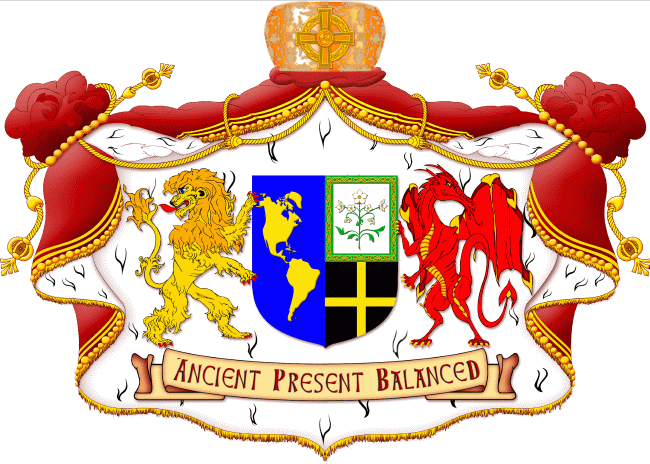

The Celtic Episcopal Church is rooted in the faith and practice of the Celtic Churches of the first thousand years of the Church History. We look to the early Ecumenical Councils of the Church for guidance and direction on matters of faith and church discipline. We also try to incorporate into our lives the unique aspects of the Celtic expression of the Christian faith that developed over the centuries.
The Saints of the Celtic Church had at the center of their lives simplicity, authenticity, and holiness. The Fact that the Celtic Church never had much to do with powerful institutions, was one of its strengths, it formed its witness and life among the insignificant and poor. This simple lifestyle meant that the Celtic Church had no difficulty in communicating with the poor. The Celtic approach to evangelizing was more gentle and humble, and altogether more sensitive to the people they were trying to reach with the Gospel. In Magnus Magnusson's book, "Lindisfarne, the Cradle Island" he describes the cultural differences between the Celtic and Roman Church this way "Celtic monks lived in conspicuous poverty; Roman monks lived well. Celtic monks were unworldly, Roman monks were worldly. Celtic bishops practiced humility; Roman bishops paraded pomp. Celtic bishops were ministers of their flocks; Roman bishops were monarchs of their dioceses. Celtic clergymen said, "Do as I do," and hoped to be followed; Roman clergyman said, "Do as I say," and expected to be obeyed." (Oriel Press, 1984,p. 58).
The Celtic commitment to a life of holiness expressed in poverty and simplicity profoundly challenges the consumerism mentality of our day. It also challenges the church's use of power and wealth at every level. In the early witness of the Celtic Church in Britain, there were two expressions of Christian faith: one that was uncritically linked with the values of a collapsing empire, and the other that took Jesus' teaching in the Sermon on the Mount at face value and dared to live it.
The Celtic Church loved the Bible. In his book "The Celtic Church in Britian" Leslie Hardinge writes, "By far the most influential book in the development of the Celtic Church was the Bible. It molded their theology and guided the worship of the early Christians. It suggested rules of conduct and transformed the ancient laws of Irish and Welsh pagans into Christian statutes. It lay at the foundation of the education of children and youth, and sparked the genius of poets and song writers. It provided inspiration for the scribes of history and hagiography (study of the lives of the saints and the manner of their worship) and affected the language of the common people, becoming the dynamic for the production of the most beautiful hand-written books ever made." (SPCK, 1972,p.29) Quotations from the Bible are to be found everywhere in Celtic Christian writing. Those who consider Celtic Christianity to be New Age need to take another look at this strong commitment to Holy Scripture. The Celtic Church put its roots deep into the word of God, and was very wary of espousing pagan customs that conflicted with biblical values and truth.
While the Celtic Churches were more theologically orthodox and accepted as such by the universal church a number of differences are immediately apparent when one looks at the history of these churches. The differences can be seen in the Celt's view of humanity, their spirituality, the works of art they made, and how they related to creation. Celtic Christian communities were modeled after the society that preceded the Christian faith. The Pre-Christian society was tribal; family oriented, and consisted of small communities. The natural result of these societal patterns was a Monastic centered expression of their faith.
The Celtic Episcopal Church tries to be a true expression of ancient Celtic Christianity in the modern era. If you are interested in this part of the church, avail yourself of the information within our site. This life affirming and life altering Celtic way is a path we can tread upon even in our modern age. Please let us know if we can assist you in any way.
NOTE:
(1) We are not part of the Family of Continuing Anglican Churches.
Thus, we do not make use of their 39 Articles of Religion.
Therefore,
(2)We do not use the Book of Common Prayer.